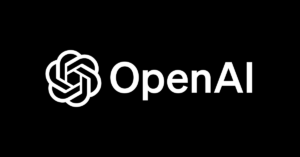In the boundless domain of Artificial Intelligence (AI), having the right toolkit can significantly ease the transition from conceptualization to realization of AI-driven solutions. The flourishing field of AI has given rise to a myriad of AI tools engineered to cater to distinct tasks across the broad realm of machine learning, deep learning, data analysis, and more. Let’s delve into a curated list of top AI tools that have amassed popularity and credibility among practitioners and researchers alike.
1. TensorFlow
TensorFlow has emerged as a frontrunner in the open-source platforms dedicated to crafting machine learning models. With a robust suite of tools and libraries, TensorFlow facilitates the building of neural networks and other machine learning architectures, making it a go-to choice for enthusiasts and professionals.
2. PyTorch
Another jewel in the open-source machine learning libraries is PyTorch. Its claim to fame is its user-friendly interface and flexibility, which has earned it a loyal following in the research community.
3. Keras
Acting as a high-level neural networks API, Keras simplifies the process of building and training deep learning models. It operates seamlessly on top of TensorFlow, CNTK, or Theano, presenting an intuitive interface for novices and experts alike.
4. Scikit-learn
For those venturing into the realms of machine learning with Python, Scikit-learn is a reliable companion. It encompasses a vast array of algorithms for various machine learning tasks such as classification, regression, and clustering.
5. OpenCV
When it comes to computer vision, OpenCV stands tall with its extensive suite of tools for image and video processing. Its applications extend to robotics, self-driving cars, and any domain requiring adept computer vision capabilities.
6. Pandas
Data manipulation is a breeze with the Pandas library. It’s equipped with efficient data structures to handle large datasets and a variety of tools for data analysis and visualization, making data wrangling a less daunting task.
7. Jupyter Notebook
The Jupyter Notebook is a beloved tool in the data science and machine learning communities. It’s an open-source web application that allows the creation and sharing of documents containing live code, visualizations, and narrative text, fostering a conducive environment for experimentation and learning.
8. H2O
H2O shines in the domain of building and deploying machine learning models. As an open-source platform, it caters to big data with a rich set of tools for data analysis, model building, and deployment.
Microsoft Azure Machine Learning:
9. Microsoft Azure Machine Learning:
For those inclined towards cloud-based solutions, Microsoft Azure Machine Learning provides a comprehensive platform with an array of tools for constructing and deploying machine learning models. It supports an extensive range of programming languages and frameworks, making it a flexible choice for diverse projects.
10. Amazon SageMaker
Amazon’s SageMaker is a robust cloud-based platform that facilitates the building, training, and deployment of machine learning models. It’s known for its scalability and supports a myriad of algorithms and frameworks.
The landscape of AI tools is vast and continually evolving. The selection of the right tool hinges on the specific requirements of the task at hand and the expertise of the user. Whether you are embarking on a new AI project or looking to enhance your current toolkit, exploring these reputable tools is a step in the right direction towards achieving your AI aspirations.



